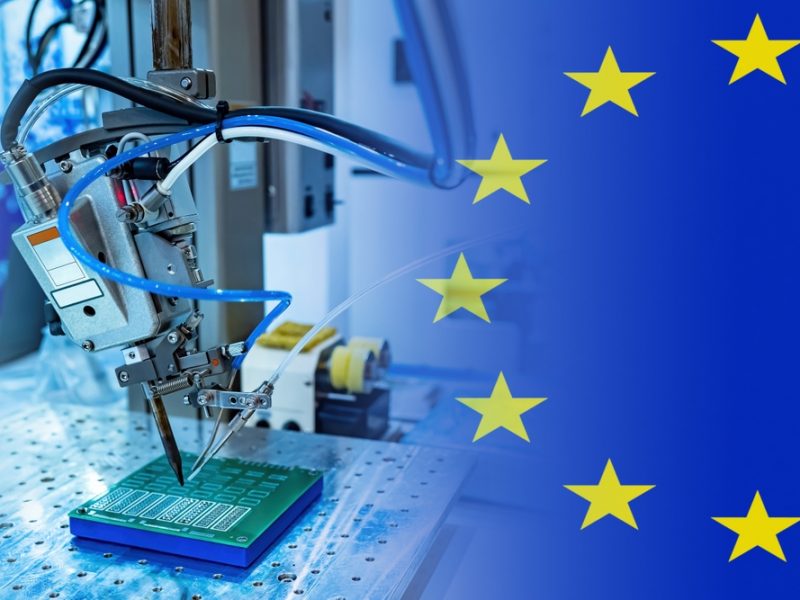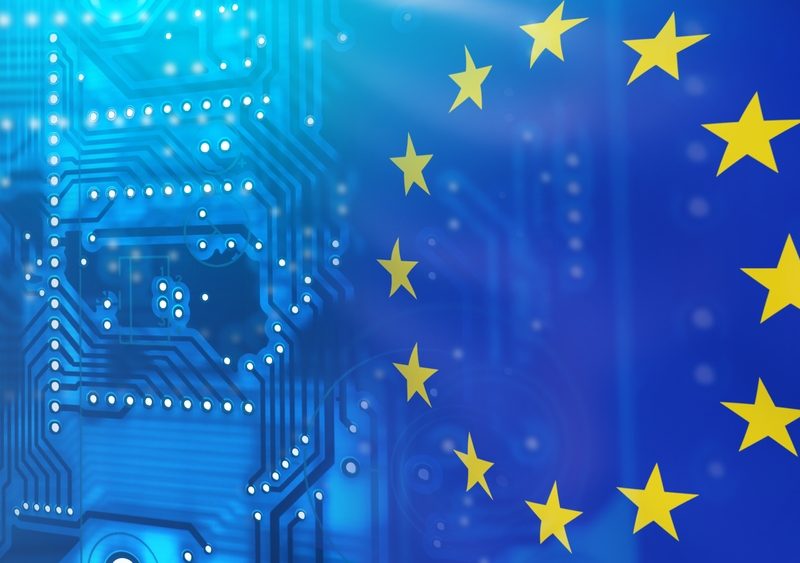
Representatives of the main EU institutions will discuss at a technical meeting on Friday (17 March) a compromise text, obtained by EURACTIV, on the mechanism for monitoring and responding to the semiconductor supply crisis in the upcoming Chips Act.
The Chips Act is a legislative proposal to boost the EU’s semiconductor capacity. A crucial part of the draft law is the so-called Pillar III, which sets up a mechanism for preventing and managing semiconductor shortages.
The legislation is currently at the last phase of the legislative process, where the European Parliament, Council and Commission meet in so-called trilogues to reach a final agreement.
Early warning mechanism
EU lawmakers introduced the principle that crisis management should be based on a long-term strategic mapping that the European Commission must conduct in consultation with national authorities and business representatives.
The idea is that this mapping exercise would identify early warning indicators that would trigger the crisis stage.
Relevant industry stakeholders will be invited to provide input helping to define such an early warning mechanism. The compromise maintains that the information requests should be voluntary and through available data that is not cover commercially sensitive.
Key market actors
The competent national authorities would have to identify key market actors established on their national territory that play a critical role in the semiconductor supply chain, whilst the EU executive would identify the critical actors at the global level.
The Commission wants to limit its participation in this mapping and leave industry stakeholders out of the discussions on monitoring, prolonging, and terminating the crisis stage.
Preventive measures
According to the document, the Commission and the competent national authorities would be responsible for informing each other if they have reliable information about the risks of severe disruptions in the supply of chips.
An extraordinary meeting of the European Semiconductor Board, a body gathering national representatives, would be convened to discuss the severity of the disruptions and whether activating the crisis stage would be appropriate and initiating preventive joint purchases of semiconductors, intermediate products or raw materials.
The Commission would also consult relevant third countries to seek solutions to the disruptions. The national authorities would be asked to assess their key actors’ preparedness and critical entities’ preparedness.
Critical sectors
A vital point marked for discussion regards the list of critical sectors that will be able to benefit from the emergency measures. This list is taken from the Directive on critical entities, which includes organisations like energy providers and banks, with the addition of defence.
One point of contention is whether there should be a direct reference to the Directive or whether the list of critical sectors should be included in the annexe to the Chips Act. The difference is that an annexe could be amended independently from the Directive.
Crisis stage
The procedure for activating the crisis stage remains highly controversial. The Parliament defined the crisis stage as an “immediate threat to citizens, and to the functioning and security and defence of the Union’s critical infrastructure, economy, and institutions”.
For the Commission, the concept should be limited to serious disruptions in the semiconductor supply chain causing significant shortages that prevent the supply or maintenance of essential products used by critical sectors.
At any rate, when the conditions are met, the Commission should request EU governments to activate the crisis stage by a qualified majority. The European Semiconductor Board would then assess the expected impact of the possible imposition of protection measures and advise on further effective measures.
The EU lawmakers want to prescribe that before entities from these critical sectors can benefit from these emergency measures, they should prove that they have done their homework in preventing possible risks, another provision opposed by the Commission.
Information gathering
Following the activation of the crisis stage, the Commission would have to launch requests for information to the key market actors, passing by the authorities of the hosting country. The EU executive would have to provide a secure way to collect and store this information.
For the Parliament, if this confidential information is leaked, the Commission or the competent national authority should launch an investigation. The entity concerned would have the right not to share further information until a remedy is implemented.
Priority orders
Following the triggering of the crisis stage, the Commission might issue priority orders to oblige European chip facilities that benefited from state aid to produce the semiconductors needed for the critical sectors via priority orders.
The chip company should be given the possibility to give its view on the feasibility of the order. The Commission is to adopt an implementing act detailing the practical arrangements for the functioning of these orders.
Common purchases
The Commission might buy crisis-relevant products for the EU countries that want to participate in the joint purchases. The mandate for this common purchasing would be based on an agreement signed with the participating member states.
[Edited by Zoran Radosavljevic]








